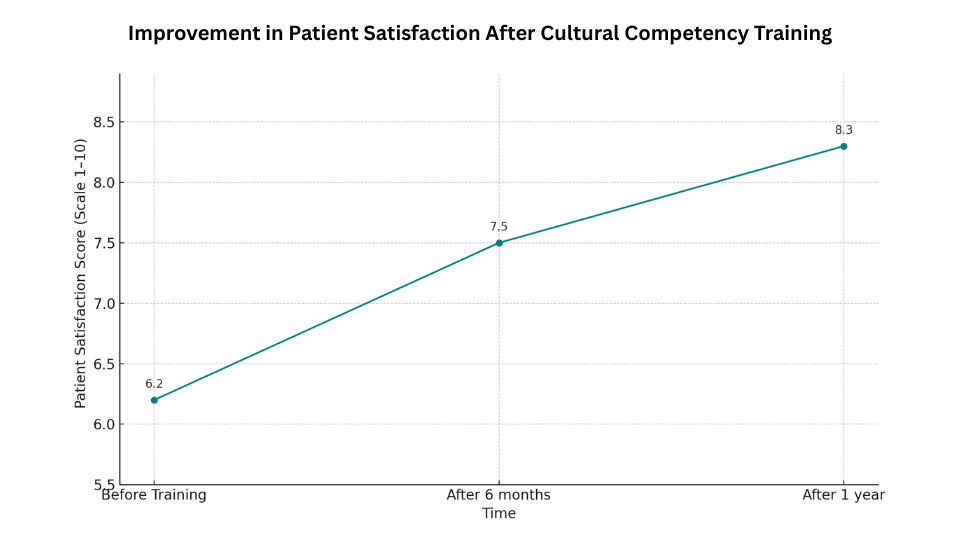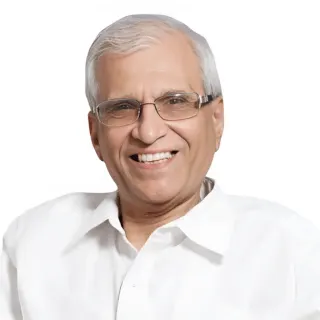Best Cosmetic & Plastic Surgeons in Indraprastha Apollo Hospital Delhi
 29 January,2026
Read More
29 January,2026
Read More
Enquire now in case of any assistance needed
 30 May,2025
30 May,2025

With growing globalization, healthcare providers are meeting patients with different cultural backgrounds. Such cultural differences are not merely an aspect of politeness to honour and respect—it is critical to providing the best, patient-centered care.
Cultural beliefs affect the behaviour of patients regarding health, definitions of illness, and interactions with the healthcare system. By embracing and incorporating cultural considerations into healthcare practice, providers can enhance health outcomes, increase satisfaction, and promote health equity.
Fill up the form and get assured assitance within 24 hrs!
People's perceptions of health, illness, and recovery are shaped by their cultural background. Physical, emotional, spiritual health, and social well-being are all considered aspects of health in many societies.
For example, in traditional African cultures, illness is often attributed to supernatural causes, and health is viewed as a balance between the individual, the community, and spiritual forces. Similarly, ceremonies and spiritual rites aimed at restoring harmony are integral to the healing practices in indigenous communities.
The biomedical model of Western medicine, which emphasises biological factors and frequently ignores the spiritual health or communal aspects of health, may be very different from these cultural differences. If these distinctions are not properly addressed, they may lead to misunderstandings between patients and healthcare providers.
Effective communication is one of the most crucial aspects of high-quality healthcare. Language barriers and communication style differences, though, could pose serious challenges.
Inability to understand medical directions may lead to poor adherence to treatment regimens because patients may lack adequate fluency with the prevailing language. Eye movements and gestures are just two of the nonverbal communication cues that vary across cultures and may lead to miscommunication.
For example, in some Asian cultures, avoiding eye contact is a sign of respect, whereas in Western cultures, it may be perceived as evasiveness. Healthcare providers must be aware of these differences and employ strategies such as using professional interpreters and culturally appropriate educational materials to bridge communication gaps.
Cultural beliefs shape family roles and healthcare decision-making. In most cultures, decisions about health are collectively made by the family, not the individual patient. For example, within some Middle Eastern and Asian cultures, family members are actively involved in agreeing to treatment and negotiating diagnoses.
An understanding of these dynamics is crucial for healthcare practitioners, enabling them to formulate care plans in partnership with patients and their families, taking into account their cultural values and preferences. Such an approach creates trust and builds patient satisfaction.
Rich customs of healing exist in many cultures, and they occasionally supplement or even replace traditional medicine. Herbal treatments, spiritual rites, and consultations with traditional healers are a few examples of these traditions. For instance, indigenous communities in Peru frequently turn to shamans, or curanderos, who cure medical conditions with herbal and spiritual remedies.
Healthcare professionals must treat these procedures with dignity and candor, attempting to ascertain their importance to the patient. Enhancing patient participation and treatment adherence can be achieved by including safe traditional practices into the care plan whenever feasible.
Cultural differences in gender roles and expectations can impact the delivery of healthcare. Certain civilizations have cultural traditions that demand a male family member to be present during medical consultations or that women should only be treated by female healthcare professionals. For example, modesty concerns may cause women in some conservative cultures to shy away from seeing male doctors.
To guarantee that every patient feels valued and at ease, healthcare institutions must acknowledge and respect individual choices. This could entail developing rules that promote culturally responsive treatment and taking staffing factors, such as granting access to female clinicians, into account.
Cultural competence—the ability of healthcare providers to understand and respond effectively to the cultural and linguistic needs of patients—is linked to improved health outcomes. Training programs designed to enhance cultural competence have been shown to improve providers' knowledge, attitudes, and skills, resulting in improved patient-provider communication and increased patient satisfaction.

This graph illustrates the improvement in patient satisfaction, from a score of 6.2 before training to 8.3 one year after hospitals implemented cultural competence programs. A steady rise highlights the positive impact of training on patient-centered care.
To provide culturally sensitive care, healthcare providers can adopt the following strategies:
To provide fair, efficient, and compassionate care, it is essential to have an appreciation and understanding of cultural differences in healthcare. Healthcare providers can build trust, improve communication, and improve patient outcomes by understanding the cultural contexts that underlie patients' health beliefs and behaviours. Being culturally competent is a continuous process that leads to excellence and inclusivity in healthcare delivery.
In this era of increasing cultural diversity within healthcare settings, the concept of "Medijourney" represents the collaborative path that healthcare providers and patients navigate together, acknowledging that each individual's cultural background fundamentally shapes their healthcare experience. The journey encompasses not only the clinical aspects of treatment but also the cultural lens through which patients interpret symptoms, make care decisions, and engage with medical recommendations.
Don't let borders limit your access to world-class healthcare. MediJourney connects you with India's finest doctors and hospitals at a fraction of the cost you'd pay elsewhere. Whether you're seeking advanced cardiac procedures, orthopedic surgery, cosmetic treatments, or specialized care, we make quality healthcare accessible and affordable. Contact us today to know more.
Fill up the form and get assured assitance within 24 hrs!
B.Sc in Media Science from NSHM Knowledge Campus, Kolkata, 2019-2022
Suryani Dutta is an experienced content writer, specializing in healthcare and medical tourism. With a B.Sc. in Media Science from NSHM Knowledge Campus, Kolkata, she creates engaging, accurate, and SEO-friendly content that empowers patients to make info
Senior Consultant
Medical Oncologist
Nanavati Super Specialty Hospital, Mumbai
WhatsApp UsSenior Director
Gynecologist and Obstetrician, IVF Specialist
Max Super Speciality Hospital, Shalimar Bagh, New Delhi
WhatsApp UsSenior Director
Gynecologist and Obstetrician, IVF Specialist
Max Smart Super Speciality Hospital, Saket, New Delhi
WhatsApp UsSenior Director
Gynecologist and Obstetrician
Max Smart Super Speciality Hospital, Saket, New Delhi
WhatsApp UsSenior Director
Gynecologist and Obstetrician
Max Smart Super Speciality Hospital, Saket, New Delhi
WhatsApp UsSenior Director
Gynecologist and Obstetrician
Max Smart Super Speciality Hospital, Saket, New Delhi
WhatsApp UsThe Art of Effective Communication
 27 January,2026
Read More
27 January,2026
Read More
 20 January,2026
Read More
20 January,2026
Read More
 16 January,2026
Read More
16 January,2026
Read More
 13 January,2026
Read More
13 January,2026
Read More
 09 January,2026
Read More
09 January,2026
Read More
Trusted by Patients
"I am Asim from Bangladesh and was looking for treatment in India for neuro. I visited many websites to get the complete information regarding the treatment but I was not satisfied as I was getting confused. In the meanwhile, one of my friends suggested I seek help from Medi Journey as he experienced his medical journey very smoothly and was satisfied with it. They have filtered the top 10 doctors as per experience, the success rate of surgery & profile, so it helps us to choose the best treatment in India. "
"For my knee surgery, Medi Journey guided me to BLK Hospital where I received exceptional care. The team's support and the expertise at BLK Hospital exceeded my expectations. Thank you Medi Journey for making my medical journey stress-free. "
"I came from Iraq for my granddaughter's eye surgery in India facilitated by Medi Journey, due to critical cases they advised us to get a second opinion from the different hospitals before going to surgery. Finally, we went to Fortis Escort Hospital, which helped us to get more confidence for diagnosis. Fortis Escort Hospital has the best eye surgeon team with the latest instruments. Thanks to all team members for providing a high-quality treatment in India at an affordable cost. "
"I came for my hair transplant in India, before coming I was so confused about choosing the best clinic and surgeon for me. But thanks to God one of my friends had a hair transplant in India through Medi Journey. He recommended me to go with them. I am completely happy with my experience with them. They were always very fast in their responses to me. the success rate of my hair transplant surgery is 100%."
"Artemis Hospital, suggested by Medi Journey, turned out to be a great choice for my treatment. The personalized assistance and medical care were exceptional. I'm grateful to Medi Journey for guiding me to a hospital that perfectly matched my needs. Highly recommended! "
"I came from Afghanistan for my treatment in India at Jaypee Hospital, Noida. I had a fantastic experience with Medi Journey. Kudos to them for their incredible support during my medical journey. They not only took care of all the logistics but also connected me with a fantastic healthcare team. Efficient, caring, and highly recommended for a hassle-free medical tourism experience."
"I am Adam from Kano, Nigeria, one of my friends from Nigeria was facilitated by Medi Journey, and he recommended us to go with them. I sent my all reports to them and within 48 hours they reverted with 4 options from different hospitals. They helped me to get a Visa letter from the hospital, arrange pick-up from the airport, and book a hotel for me. Their team is very honest and throughout our stay in India they are with us they are caring for us like his family members. BLK Hospital is the best hospital in India with a top surgical oncologist surgeon team, a very advanced OT, and a Radiotherapy department. I wish more success to Medi Journey. "
"Great experience at the Max Hospital for my spine surgery and was successfully done. I thank my neurosurgeon and his entire team. I recommended all of my country's people to Medi Journey for treatment in India, they choose the best hospital, the best doctors, and the best cost for patients."
"I came to India from Dhaka, Bangladesh for my father-in-law's cardiac surgery at Fortis Hospital. I was confused about choosing the best surgeon for him before coming, but their team helped me to choose the best hospital and best cardiac surgeon in India with very good cost and 100% success rate of surgery. I am very happy with the services, really they make my journey so comfortable that make me feel at home. Thanks again and I like people to choose "Medi Journey" as your travel guide. "
"I am Mohammad from Bangladesh came to India for my general health checkup. Medi Journey offers me the complete package including Pick-up from the airport, hotel services, and 24-hour assistance. They guide you to choose the best hospital in India, the best cost of treatment with top-most doctors and give you complete information about hotel booking, and pick-up from the airport before coming to India They have the best team to help. Always choose Medi Journey for your treatment in India."





